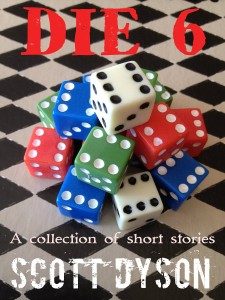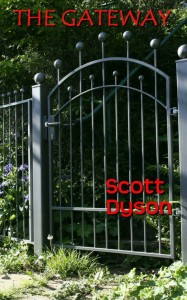It seems every other article on The Passive Voice and on Joe Konrath’s blog (okay, it’s every article on Konrath’s blog) is about the Amazon/Hachette dispute. Most of them center on the 900 or so successful authors who signed Douglas Preston’s letter (I’m not bothering to link to it; it will be easy enough to find from TPV or Konrath’s blog if you want to find it) and their accusations against Amazon, who they feel is holding their books hostage, and therefore costing them money. How it’s costing them money, I don’t know. You can still order their ebooks at the click of a button, and you can still order their physical books as well – apparently their pre-order buttons are gone and so people aren’t able to buy their books before they’re out and then they don’t get listed as highly on the NY Times bestseller list the day their book is released and…
Well, you sort of get the idea. They’re complaining about the fact that the dispute between their publisher and Amazon is costing their publisher sales – presumably sales that will be held against them in the future, since they’ve pretty much already been paid for their books with their seven figure advances. I mean, Stephen King is a very rich man. If he never wrote another book, he’d still be a rich man. If his SON never wrote (or sold) another book, his SON would be a rich man, simply by inheriting his father’s estate (or a third of it). Is King Koch Brothers-rich? Probably not, but he’s so much wealthier than the rest of humanity, he certainly falls into that 1%.
But that’s neither here nor there. The hard fact is that most people who write a book will NEVER be published by a large publisher. Most will never be published by a publisher of any size…unless said publisher is themselves. Who has made it possible for anyone with a book to get it published? Amazon. I suppose you can give some credit to iBooks/Apple, Kobo and Sony, and even to Barnes and Noble’s Nook. But Amazon’s the big fish in this pond.
So Amazon’s publishing anyone and everyone…right? No, not right. The writers are publishing themselves. Amazon (and B&N and the others) are distributing their works. They are making it possible for a writer to reach readers. In some cases, like mine, it might be only a couple of readers with each book. In other cases, it’s hundreds, maybe even thousands. In still other cases (we’re all looking at you, Mr. Hugh Howey), they sell enough to basically get rich. Cool, huh?
Well, I suppose it isn’t cool if you’re Stephen King, or James Patterson, or Douglas Preston. If you’re those guys, you want the club to remain closed to new members. Only those approved by … by who? … can get in. Meanwhile, every dollar spent on a Scott Dyson (or an Edward J. Robertson, or a Steven M. Moore, or a Bobby Adair, or a D.J. Gelner, or a J.M. Ney-Grimm, or a Lindsay Buroker (I’ll stop there) is a dollar not spent on a book by King, or Patterson, or Preston. Maybe, instead of buying books by all three of those guys, and supplementing the purchases with more purchases by Coben and Evanovich and Child and Connelly and…, this buyer only buys two of those authors’ new books.
Plus, we write trash, swill, whatever. We must write swill, because no agent or editor at a big publishing house, ever got to look at our work, and no one could tell us that we sucked. Except the reader. The readers can tell us we suck. And apparently they do, in blogs and in Amazon reviews and such. But they also tell King and Coben and Patterson and Preston and Evanovich and Child and Connelly and… that they also suck. Sometimes.
Because the reading experience is subjective, what one person likes is not necessarily what another person likes.
Well, I went a little off track there.
The truth is, Amazon is not always a publisher. What it always is, is a RETAILER. Just like T.J. Maxx and Walmart and Target and Macy’s and Walgreens and Michael’s and Barnes and Noble and…wait, Barnes and Noble…they’re the ones Amazon is competing with, not the publishers. They’re a purchaser of supplied product, in this case, books.
Why is that so hard to understand?
They aren’t paying a 70% royalty to KDP writers, they are taking a 30% cut for distribution from KDP author/publishers. 30% is their margin between $2.99 and $9.99. Above and below those numbers, their cut is far worse for the author/publisher- 65%. But when you think about it, what is being sold at that lower number? It’s short stories and short-ish novellas, works that were otherwise unsellable. I’m sure they do it that way because that is how they want these ebooks priced. So those are their terms. As an author/publisher, it’s take ’em or leave ’em.
What happens to RHP or Hachette or whoever, when they price above those lines? I’m not sure, but I have a feeling they’re getting more than 35% of the profit. I really don’t know.
Nor do I care. While it bothers me to see misinformation getting bandied about, and authors saying things about Amazon that do not appear to be grounded in actual facts, in the end, it doesn’t affect me as a writer.
I have seven short (ish) stories priced at $0.99, and three collections/longer works currently priced at $2.99. I just would like to see myself move more copies.
As a reader, however, I can unequivocally state that I refuse to pay more than $9.99 for an ebook. Actually, I refuse to pay more than about 6 bucks for an ebook for myself. I might go higher for my kids’ books. I also will never pre-order a book (or a movie or just about anything else). I don’t see the need for it. It’s not like there is suddenly a shortage when it comes out, and it’s not like I don’t have enough books to read. If they are successful in pushing up the price of ebooks to the reader, I will simply buy even more independent fiction. There are plenty of authors I like writing plenty of books I like. I’m not all that picky when it comes to a good story. I will buy less traditionally published fiction. What I do buy will likely often be remaindered copies.
So there. That’s the extent of what I can do about higher ebook pricing.
*****


